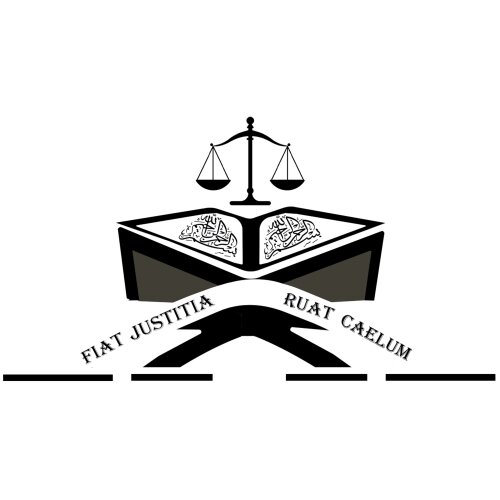Best Asylum Lawyers in Islamabad
Share your needs with us, get contacted by law firms.
Free. Takes 2 min.
List of the best lawyers in Islamabad, Pakistan
About Asylum Law in Islamabad, Pakistan
Islamabad, as the capital city of Pakistan, adheres to the national laws and international treaties dealing with asylum and the protection of refugees. Pakistan is not a signatory to the 1951 Refugee Convention or its 1967 Protocol. However, the country has a history of providing protection to refugees and asylum-seekers, primarily on a case-by-case basis in line with its international obligations and national interests. Asylum laws in Islamabad are therefore informed by a combination of local practices, Islamic law, international customary law, and ad hoc arrangements with the United Nations High Commissioner for Refugees (UNHCR).
Why You May Need a Lawyer
Understanding and navigating the laws pertaining to asylum can be complex given the absence of a clear legal framework for refugees and asylum-seekers in Pakistan. A lawyer can help in situations where:
- An individual fears persecution and needs to apply for asylum.
- They are seeking advice on the legal status and rights in Pakistan.
- Refugees require assistance with registration, documentation, or with UNHCR processes.
- There are issues related to detention or deportation.
- They require legal representation in handling appeals against decisions.
Local Laws Overview
Given that there is no comprehensive asylum framework in Pakistan, the key aspects of laws and practices relevant to asylum-seekers in Islamabad include:
- Application for recognition as an asylum-seeker is processed by the UNHCR, with the collaboration of Pakistani authorities.
- Cases are assessed individually to determine eligibility for the formal status of a refugee.
- Once recognized by UNHCR, individuals receive a refugee card which provides a degree of protection against arbitrary arrest, detention or deportation.
- Refugee status determination is guided by international standards and is subject to review and appeal within the UNHCR.
- Pakistan's Foreigners Act, 1946, and the Foreigners Order, 1951, govern the stay and movement of all foreigners within the country, which can impact asylum-seekers.
Frequently Asked Questions
1. What is the role of the UNHCR in Islamabad?
UNHCR conducts refugee status determination for asylum-seekers, provides assistance, protection, and advocates for refugee rights in coordination with Pakistani authorities.
2. Can an asylum-seeker work in Islamabad?
As of current policies, asylum-seekers are not granted the formal right to work in Islamabad; they often rely on informal sectors or UNHCR assistance for livelihood.
3. How can someone apply for asylum in Islamabad?
Applications for asylum should be submitted directly to the UNHCR office in Islamabad.
4. Can women and children seek asylum independently?
Yes. Special considerations are given to vulnerable groups, and they can seek asylum independently.
5. What if an asylum application is rejected by the UNHCR?
The applicant has the right to appeal within the UNHCR processes, and a lawyer can assist in preparing for this appeal.
6. Is it possible to obtain Pakistani citizenship as a refugee?
Pakistan does not typically offer citizenship to refugees; their stay is generally temporary until a durable solution is found.
7. Are there any health services available for asylum-seekers?
Basic healthcare might be made available through UNHCR or partner NGOs, but access is limited and varies.
8. Where can an individual report abuse or discrimination?
Reports can be made to the nearest police station, UNHCR, or a lawyer specialized in human rights.
9. Can an asylum-seeker be detained in Islamabad?
Under Pakistani law, foreigners without legal status, which may include asylum-seekers, can be detained, but having UNHCR documentation typically affords a certain level of protection.
10. How long does the asylum process take?
The duration of the asylum process can vary widely depending on the complexity of the case and the UNHCR's caseload.
Additional Resources
Asylum-seekers can seek assistance from:
- The UNHCR for protection and asylum applications.
- Local NGOs that provide assistance to refugees and asylum-seekers.
- Community support groups and international organizations.
- Embassies of countries that may resettle refugees.
Next Steps
If you need legal assistance related to asylum in Islamabad, you should:
- Contact the UNHCR and register as an asylum-seeker as a preliminary step.
- Consult with a qualified and experienced lawyer who understands asylum and human rights law.
- Keep all your documents, evidence, and any correspondence safe and organized.
- Stay informed about any policy changes regarding the asylum law in Pakistan.
Lawzana helps you find the best lawyers and law firms in Islamabad through a curated and pre-screened list of qualified legal professionals. Our platform offers rankings and detailed profiles of attorneys and law firms, allowing you to compare based on practice areas, including Asylum, experience, and client feedback.
Each profile includes a description of the firm's areas of practice, client reviews, team members and partners, year of establishment, spoken languages, office locations, contact information, social media presence, and any published articles or resources. Most firms on our platform speak English and are experienced in both local and international legal matters.
Get a quote from top-rated law firms in Islamabad, Pakistan — quickly, securely, and without unnecessary hassle.
Disclaimer:
The information provided on this page is for general informational purposes only and does not constitute legal advice. While we strive to ensure the accuracy and relevance of the content, legal information may change over time, and interpretations of the law can vary. You should always consult with a qualified legal professional for advice specific to your situation.
We disclaim all liability for actions taken or not taken based on the content of this page. If you believe any information is incorrect or outdated, please contact us, and we will review and update it where appropriate.














